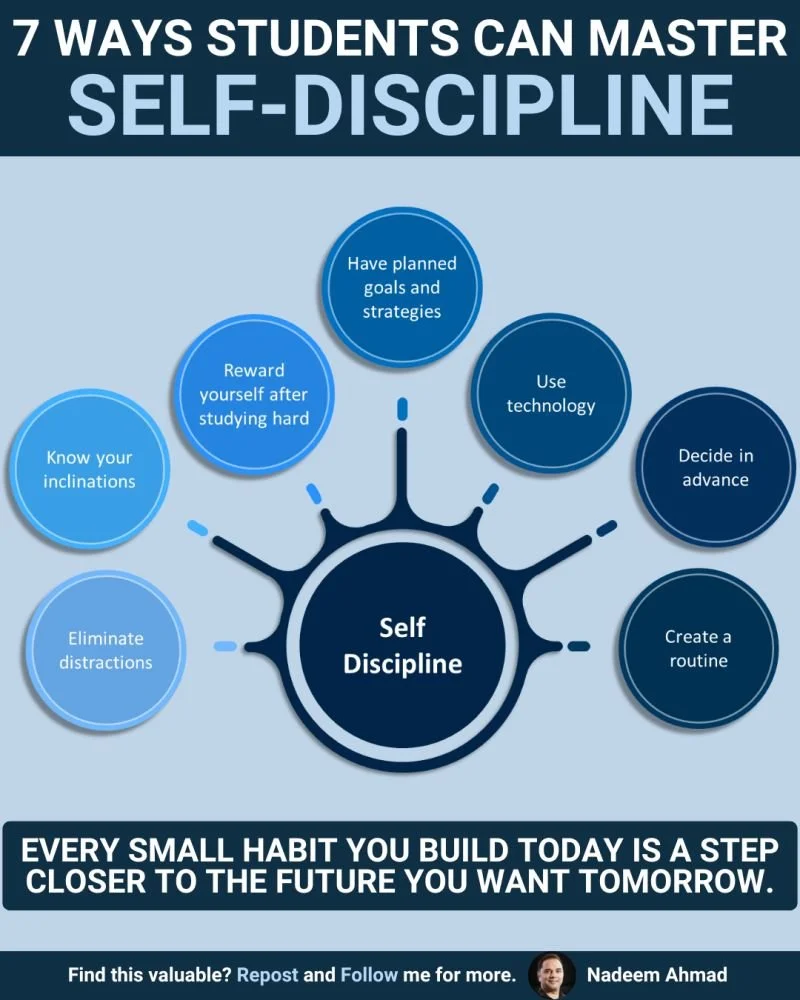Building Self-Discipline: Tools, Strategies, and Everyday Success Tips
Building Self-Discipline: Tools, Strategies, and Everyday Success Tips
Estimated reading time: 7 minutes
Key Takeaways
Understanding self-discipline and why it drives lasting success
Seeing how motivation and discipline differ—and work together
Using practical tools for daily consistency
Applying self-accountability methods that actually stick
Integrating discipline practices seamlessly into daily routines
Understanding the Core Topic
Building Self-Discipline Defined
Building self-discipline means developing the ability to stay focused on long-term goals, even when distractions or setbacks arise.
It’s the daily choice to push through challenges and remain committed, ensuring steady progress toward personal and professional aspirations.
The Importance of Self-Discipline
Self-discipline is a cornerstone of achievement.
It influences every area of life:
Career: meeting deadlines, delivering consistent results
Education: finishing demanding courses or certifications
Relationships: keeping commitments and building trust
Personal growth: strengthening self-esteem and mental resilience
Cultivating discipline provides structure and helps transform goals into reality.
Why Building Self-Discipline Matters
Many people look for practical strategies to enhance discipline and motivation so they can meet commitments and fulfill ambitions.
Recognizing and applying the right methods is key to achieving meaningful, long-term success.
Deep Dive into Key Concepts
Motivation vs. Discipline
Motivation is the emotional spark that initiates action—helpful, but temporary.
Discipline is the consistent practice of working toward goals regardless of mood or energy level.
Relying on discipline over fleeting motivation is essential for sustained achievement.
This means creating routines and systems that continue even when initial excitement fades.
Practical Applications and How-Tos
Daily Discipline Guide
Morning: Reflect on your goals and prioritize key tasks.
Throughout the Day: Take scheduled breaks to maintain focus and prevent burnout.
Evening: Review accomplishments, learn from challenges, and adjust tomorrow’s plan.
Utilizing Visual Aids and Tools
Integrate infographics or step-by-step visuals to simplify daily planning.
Use habit tracking apps (such as Habitica, Streaks, or Notion) to monitor progress and stay accountable.
Keep a physical or digital checklist for immediate feedback and motivation.
Integrating Motivation with Discipline
Reward milestones: Treat yourself when reaching key targets to reinforce positive behavior.
Celebrate small wins: These micro-celebrations maintain momentum and make discipline more enjoyable.
Frequently Asked Questions (FAQ)
How can I improve discipline if I’m not naturally motivated?
Break big goals into small, achievable milestones. Success at each step builds motivation from within and strengthens the discipline habit.
What common mistakes should I avoid?
Overcommitting without leaving time for rest and recovery
Setting goals that are too vague or unmeasurable
How does discipline improve daily life?
Consistent discipline leads to better decision-making, reduced stress, and stronger time management, creating space for both achievement and well-being.
Conclusion and Call to Action
By understanding the principles of self-discipline, using practical tools, and applying proven self-accountability methods, you can dramatically improve your ability to stay focused and productive.
Start today:
Adopt one discipline strategy—for example, a habit-tracking app or morning review.
Reflect each evening to strengthen your progress.
Share your experiences or questions in the comments, and sign up for our newsletter for regular strategies and expert insights.
Let’s build stronger self-discipline together and optimize your potential for everyday success.


